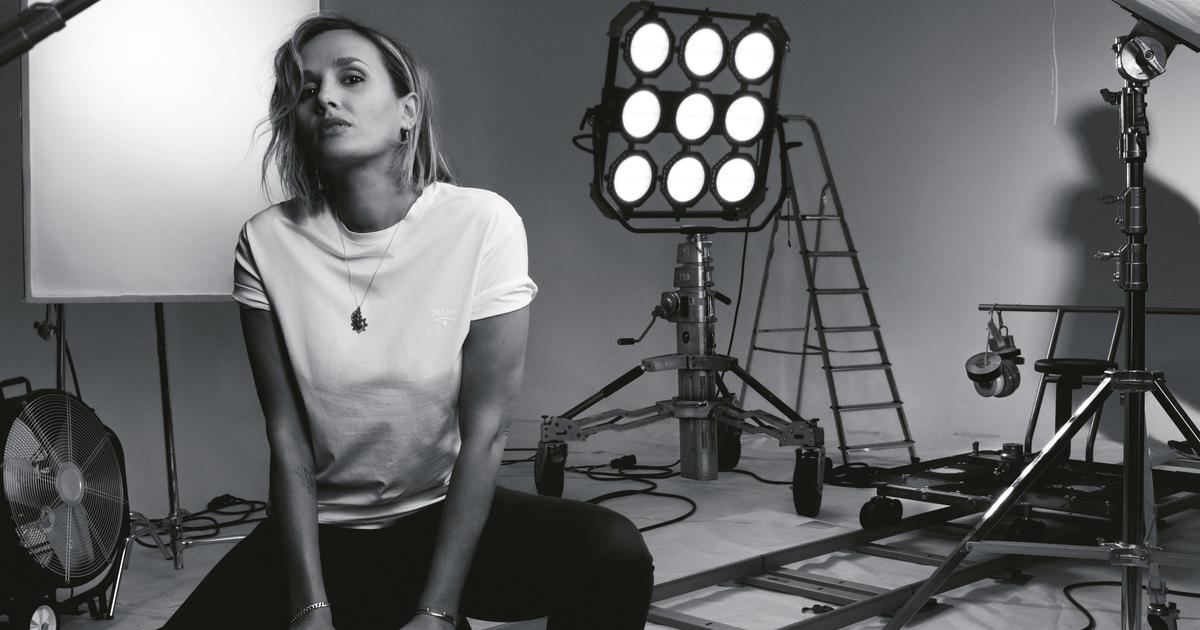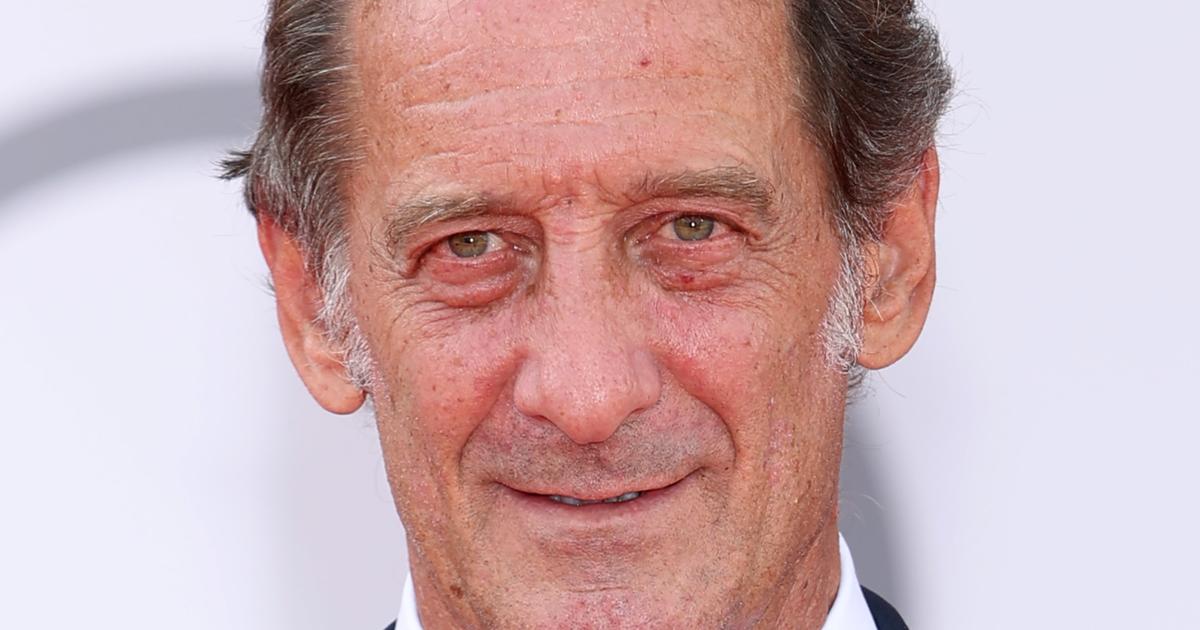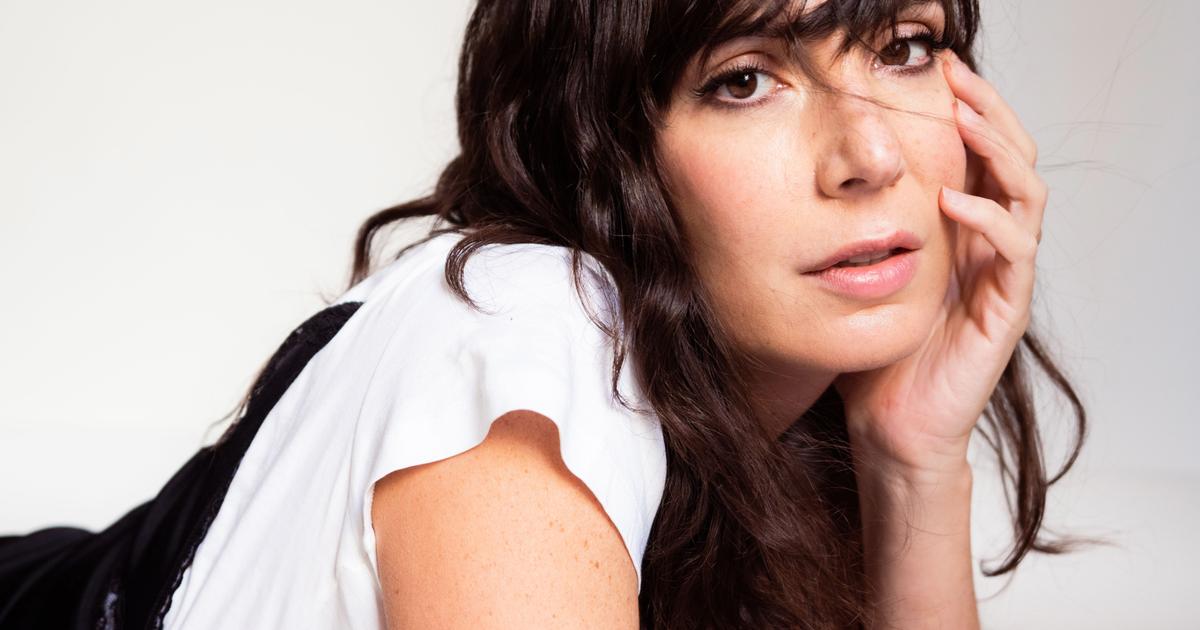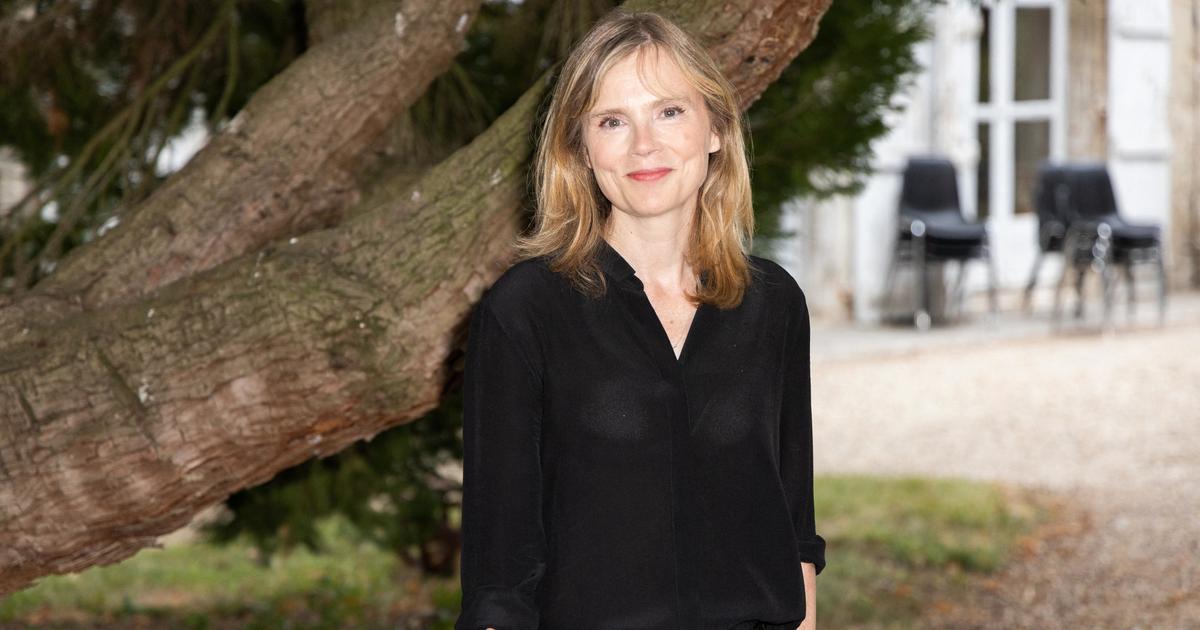Cannes Film Festival, July 17, 2021. Julia Ducournau makes cinema history: Spike Lee awards her the Palme d'Or for
Titane,
a visceral and organic exploration of the body, gender and a love born of chaos.
Revealed by her first film
Grave
in 2017, the French filmmaker then became the second director to obtain the supreme title on the Croisette, twenty-eight years after Jane Campion for
The Piano Lesson
.
The symbolism is certainly important in an environment still dominated by men, but it is above all a radical, singular and striking cinema proposal that the jury then salutes.
To discover
"06400 Cannes", the postcard from the Festival, episode 2: the memories of Elle Fanning, the confidences of Carla Bruni and the smile of Julia Roberts
Read alsoExtreme violence and abused bodies: with "Titane", Julia Ducournau and Agathe Rousselle shake up the Cannes Film Festival
A year has passed since the coronation.
The director has since moved to Marseille: we find her there on the terrace, just a few days before she joins Cannes for the 75th anniversary ceremonies.
“I only now feel the repercussions of the Palme, notably through new requests.
I don't want to be picked up for a prize, but because people love my work and want to see it grow."
Another consequence of her now worldwide notoriety, she now receives testimonials of admiration and congratulations from actors and directors.
Recently, she has corresponded with Pedro Almodóvar, one of her idols.
It is not surprising that the Madrid master recognized himself in certain places in Julia's cinema.
In video, "06400-Cannes": the postcard of the Cannes Film Festival 2022
"I've always been drawn to artists who find beauty in places where you don't see it and who make it something deeper and more urgent than simple aesthetic pleasure," she says before quoting Pasolini. , Lynch, Tarkovski, Cronenberg or Fellini for cinema, Edgar Allan Poe or Lovecraft for literature, Francis Bacon, Cindy Sherman, Nan Goldin or Mapplethorpe among painters and photographers.
"There is a network of meaning in the works that formed me: they confronted me with the idea that light could emanate from a great existential malaise, that a living matter or that love could emerge from anywhere.
I am in search of this vitality in the dark, of this amazement.
An effect that she seeks through a specific language, genre cinema, ideal,
Julia Ducournau, the Cover Story
In images, in pictures
See the slideshow04 photos
See the slideshow04 photos
In the initiatory tale
Grave
,
the awakening to sexuality and adulthood of a veterinary student thus passes through cannibalism.
In
Titanium,
she deconstructs the stereotypes of femininity through the mutant — and titanium-grafted — body of an erotic dancer charged with murderous impulses (the Agathe Rousselle revelation).
Disturbing.
Polarizing.
Unbearable for some.
She knows it, and accepts it.
“My characters are not on the margins, as has been said or written a lot.
They are marginalized.
It's different.
Through their bodies, I try to show feelings that we repress to correspond to a norm, so as not to break social taboos.
I have a visceral need to abuse the unsaid, to show the blind spots, all those places that are dehumanized.
I refuse to forbid myself things because of so-called propriety.
This quest for beauty in the interstices is undoubtedly linked to the desire to
to have an experience of my humanity that is full.
A way perhaps to ward off my fear of death.
Which is part of Julia's vocabulary and daily life from childhood: her parents are doctors, dermatologists and gynecologists.
“My relationship to life and to the body has necessarily been colored by this family context.
There is nothing left unsaid in medicine, words we dare not utter, bodies we dare not touch.
For me, the body has always been at the center of everything.
I understood very young that it could in no way be dissociated from the spirit.
In other words, that he spoke for himself, as in his films where physical feelings, empathy through the body, often replace dialogue.
However, Julia Ducournau loves words deeply: she wanted to be a writer.
For me, the body has always been at the center of everything.
Julia Ducournau
As a child, the little Parisian was melancholy, lonely, like Alice in Wonderland or the young heroine of the film
Cria Cuervos,
by Carlos Saura into which she immediately projects herself.
To escape boredom and stay “in her world”, Julia writes a lot and asks her parents to give her writing subjects during the holidays.
“About three years ago, my mother found a CE1 text.
Reading it, I was on the verge of tears.
It spoke exactly of the concerns that still agitate me: the intrusion of a third party into a habitat, the genre, the transformation, the unsaid... Whether you are a filmmaker or a writer, the plots and the characters differ, but I am convinced that the base, which often comes from something distant, archaic, remains the same.”
As a teenager, she loved poetry and lined up the verses: here again, the imagery is very strong, uncompromising.
After hypokhâgne and khâgne,
she hears about the Fémis.
Driven by her film education covering the golden age of Hollywood as the New Wave, she tried the competition in "Scenario" and joined the prestigious film school.
During the training, she has fun with the camera.
"A revelation.
I understood that I could only go to the end of my story by putting it myself in pictures.
Full screen
Julia Ducournau wears a t-shirt and Rangers, Parda.
Photo Jean-Baptiste Mondino
Graduated in 2008, she was selected for Critics' Week in Cannes three years later for her short film
Junior
.
A story like no other, where the puberty of a young girl is manifested by the loss of shreds of flesh from which escapes a strange liquid.
“The female body is a place of projection and I try to reclaim it in all my films, not considering it as an object, but as a subject.
Gender and the female body are political in the sense that they are the object of projections, of external speculations which have always prevented women from appropriating them freely.
For example, it is instructive to see our relationship to the public space: where a man does not think twice about it, women apprehend it as a place where one must be vigilant, on the lookout, and establish “just in case” strategies.
This clearly reflects the status of victim that society imposes on the female gender, and that the
we thought for a long time “normal”, until MeToo.
The character of Alexia in
Titanium
undoubtedly comes as a reaction to this archaic fantasy which has made women a designated prey.
And part of its violence comes from my anger and shock at the scale of the abuse.”
The female body is a place of projection and I try to reclaim it in all my films, considering it as a subject
Julia Ducourneau
The question of gender, a systematic prism of looks and interpretations in our societies, she knows in more than one way: officiating in a type of cinema still monopolized by men, she is often defined as the exception, the bird rare, sometimes to the detriment of highlighting her work as an author and technician.
“It's an ongoing effort to refocus the debate.
My gender or who I am in life, it doesn't matter, the only thing that matters is the movies.
It is through them that we can communicate”, she replies with the outspokenness that characterizes her.
"I have always recognized myself in the works of both female and male artists."
Today, Julia Ducournau is working on the script for her third feature film from the city of Marseille, where she has found a way of life more conducive to creation.
“I'm a bear, I don't go out much, I prefer to put my energy into my work.
The two previous films, I partly wrote them in Rome, which I had discovered during a stay at the Villa Medici.
This city is everything I love: beauty in chaos.”
By his own admission, for
Grave
, the writing had been more limpid, carried by the vital energy of the first times and "that absolute luxury of not being expected".
For
Titanium
, the delivery was difficult, delayed by a few periods of anxiety and blank pages.
Today, her third baby is being built in the shade of a Palme d'Or.
A weight ?
A reassuring recognition?
Listen: the editorial staff podcast
“I thought it was rather cumbersome at first.
When Steven Soderbergh received it for
Sex, lies and video
, he said: “I can only regress”.
That's exactly what I thought at the time.
It took time for it to settle… But I am better equipped today to understand things.
Palm or not, I understood that the time of creation is long and arouses great fears.
There is something sacred in writing that tests belief, endurance, resilience.
It is often a painful process.”
Why continue then?
“For the promise of ecstasy!” she replies before returning to lock herself in her bubble to concoct a new vertigo of cinema which she will say nothing about.
His preoccupations, from deconstructing stereotypes to self-discovery, should once again have the starring role:
"I don't see very well how a filmmaker could completely turn around from one film to another and forget his obsessions and his fantasies."
A director once said: "Making cinema is always looking at the same diamond, but under a different facet."
In this case, the rough diamond that she shapes from film to film has already revealed a precious brilliance.









